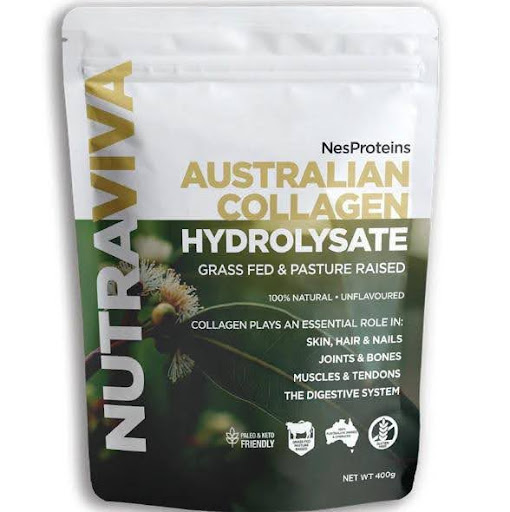If you’ve ever wondered how to keep your skin glowing, your hair shiny, and your joints strong – the answer might be collagen protein. Collagen is the most abundant protein in the human body and plays a vital role in maintaining structure, strength, and flexibility in your tissues.
As we age, collagen levels begin to decline – which is why wrinkles, joint stiffness, and dull skin often appear. Thankfully, you can restore your collagen naturally through food or supplements. Let’s explore what collagen protein is, why it’s essential, and how it can transform your health.
What Is Collagen Protein?
Collagen is a fibrous structural protein that makes up about 30% of all the protein in your body. It provides strength and elasticity to skin, bones, tendons, ligaments, cartilage, and even blood vessels. In simple words, collagen acts as the body’s “glue,” holding everything together.
There are over 28 known types of collagen, but the main ones are:
-
Type I: Found in skin, bones, and tendons – improves strength and elasticity.
-
Type II: Found in cartilage – supports joints and flexibility.
-
Type III: Found in muscles and blood vessels – helps tissue repair and growth.
How Collagen Works in the Body
Collagen is made up of amino acids – mainly glycine, proline, and hydroxyproline. These amino acids form a triple-helix structure, giving collagen its strength.
When you consume collagen (through foods or supplements), your body breaks it down into amino acids and peptides. These are then reused to rebuild skin cells, cartilage, tendons, and ligaments, keeping your body healthy and youthful.
Natural Sources of Collagen Protein
You don’t always need supplements – your diet can also help increase collagen levels naturally.
Animal-Based Sources
-
Bone Broth: The best natural source of collagen.
-
Chicken & Fish: Especially skin and bones.
-
Beef: Rich in amino acids that support collagen synthesis.
-
Egg Whites: Contain proline – an important building block of collagen.
Plant-Based Foods (Support Collagen Production)
-
Citrus fruits: Vitamin C helps the body produce collagen.
-
Leafy greens: Contain chlorophyll, which boosts collagen formation.
-
Berries: High in antioxidants that protect existing collagen.
-
Nuts & Seeds: Rich in zinc and copper – vital for collagen synthesis.
Collagen Supplements
If you can’t get enough collagen through food, collagen supplements are a great alternative. They’re available in powder, capsule, or liquid form.
The best type is hydrolyzed collagen (collagen peptides) – because it’s broken down into smaller molecules, making it easy for your body to absorb. You can mix it into your coffee, smoothies, or soups without changing the taste.
Top 7 Benefits of Collagen Protein
1. Improves Skin Elasticity and Hydration
Collagen keeps your skin firm, smooth, and youthful. Regular intake can reduce wrinkles, dryness, and fine lines – helping you achieve a natural glow without expensive creams.
2. Strengthens Joints and Bones
Collagen forms the framework for cartilage and bones. It helps reduce joint pain, stiffness, and supports recovery after injury. Ideal for athletes and older adults.
3. Supports Hair and Nail Growth
Collagen provides amino acids that promote healthy hair and strong nails. It reduces nail breakage and makes hair thicker and shinier.
4. Aids Muscle Growth and Recovery
Since collagen is rich in glycine and proline, it supports muscle repair after exercise and enhances strength when combined with resistance training.
5. Improves Gut Health
Collagen helps heal and seal the gut lining, preventing issues like leaky gut syndrome and improving digestion.
6. Promotes Heart Health
Collagen maintains the structure of blood vessels, helping improve circulation and reducing the risk of artery stiffness.
7. Enhances Sleep and Mood
Glycine in collagen has a calming effect on the brain, helping reduce stress and promote deeper, more restful sleep.
How to Add Collagen Protein to Your Diet
Here are some simple ways to make collagen part of your daily life:
-
Add a spoon of collagen powder to your morning coffee or smoothie.
-
Use bone broth as a base for soups or stews.
-
Cook rice, pasta, or lentils in broth instead of water.
-
Eat protein-rich foods like fish, eggs, and lean meat.
-
Pair collagen foods with vitamin C sources (like oranges or lemons) to boost absorption.
Side Effects and Safety
Collagen protein is safe for most people, but it’s important to note:
-
Avoid marine collagen if you’re allergic to fish.
-
Some people may experience mild bloating or a bad taste initially.
-
Always buy from trusted brands that use grass-fed or wild-caught sources.
Consult your healthcare provider if you have medical conditions before starting any supplement.
Collagen vs Other Proteins
Conclusion
Collagen protein isn’t just a trend – it’s a powerful, natural nutrient your body truly needs. From promoting glowing skin and shiny hair to strengthening your joints and bones, collagen supports your overall wellness from the inside out.

